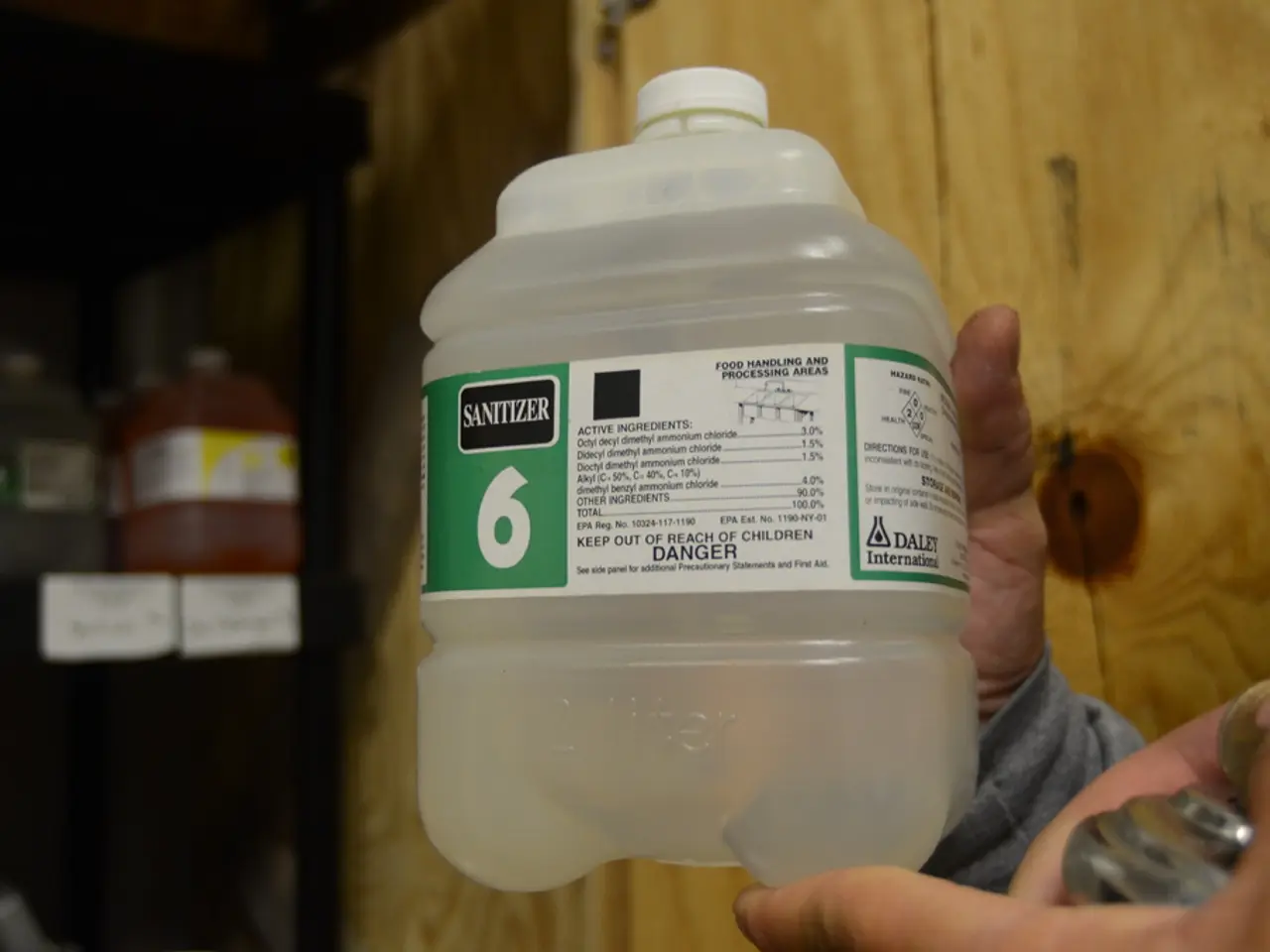Latest Details on Legionnaires' Disease Outbreak in New York City: Understanding the Condition
In the heart of New York City, a recent outbreak of Legionnaires' disease has been making headlines. As of August 11, 2025, the outbreak involves 90 confirmed cases, 3 deaths, and 17 hospitalizations primarily in Central Harlem, affecting ZIP codes 10027, 10030, 10035, 10037, and 10039[1]. The outbreak seems to be centered around this area, with no expectation of spreading beyond these communities[2].
Legionnaires' disease is a serious type of pneumonia caused by the bacteria Legionella. Contrary to popular belief, this disease is not contagious, so it cannot be contracted from someone. However, transmission can occur by inhaling bacteria from water or soil[3].
The cause of the current outbreak is suspected to be linked to a building's cooling system, where Legionella bacteria thrive in warm water environments and spread through inhaling contaminated aerosolized water droplets[3]. The NYC Health Department is investigating the cluster and increasing enforcement. New measures include introducing a new laboratory certification requirement for all buildings citywide and new penalties for landlords who fail to maintain or report on water systems, to take effect in the spring of 2026[1].
Preventive measures emphasized include seeking medical care immediately for individuals in the affected areas with flu-like symptoms, such as cough, fever, chills, muscle aches, shortness of breath, nausea, or diarrhea[1][3]. High-risk groups include people aged 50 and older, smokers, and those with chronic lung disease or compromised immune systems[1][2].
Public health authorities are focusing on water system management and enforcing building maintenance standards to control and prevent further spread[1]. Residents in the affected ZIP codes can continue to drink water, bathe, shower, cook, and use their air conditioner. Cleaning water-using devices and flushing faucets can help prevent the growth of Legionnaires' bacteria[3].
A water management program used by building owners and managers can help reduce the risk of Legionnaires' growing. It's also worth noting that the bacteria grows in warm water, so maintaining proper temperatures in water systems is crucial[3].
The latest outbreak of Legionnaires' disease does not currently have an identified cause, but it's under investigation by the New York City Health Department. It's important to remember that early medical attention improves outcomes, and there is no vaccine for Legionnaires' disease currently available[3].
In a positive development, the remediation required by the Department has been completed for the 11 cooling towers with initial positive screening results showing the presence of Legionella pneumophila[4].
Stay informed, stay safe, and remember to seek medical attention promptly if you experience flu-like symptoms in the affected areas. The city is taking steps to address the issue, and with everyone's cooperation, we can help control the spread of Legionnaires' disease.
[1] New York City Health Department. (2025). Legionnaires' Disease Outbreak in New York City. Retrieved from https://www.nyc.gov/health/diseases/diseases-conditions/legionnaires-disease/outbreak/
[2] New York City Health Department. (2025). Legionnaires' Disease Outbreak in New York City: Frequently Asked Questions. Retrieved from https://www.nyc.gov/health/diseases/diseases-conditions/legionnaires-disease/outbreak/faq/
[3] Centers for Disease Control and Prevention. (2021). Legionnaires' Disease: What You Need to Know. Retrieved from https://www.cdc.gov/legionella/info/whatis.html
[4] New York City Health Department. (2025). Legionnaires' Disease Outbreak in New York City: Latest Updates. Retrieved from https://www.nyc.gov/health/diseases/diseases-conditions/legionnaires-disease/outbreak/updates/
- To combat the current outbreak of Legionnaires' disease, the city is introducing a new laboratory certification requirement for all buildings in New York City.
- High-risk groups for Legionnaires' disease include individuals aged 50 and older, smokers, and those with chronic lung disease or compromised immune systems.
- The NYC Health Department is increasing enforcement and taking measures to prevent further spread of the disease.
- Seeking medical care immediately for flu-like symptoms is crucial for those in the affected areas.
- Legionnaires' disease is a serious type of pneumonia caused by the bacteria Legionella, which is not contagious.
- Transmission of the disease can occur by inhaling bacteria from water or soil.
- Preventive measures include cleaning water-using devices and flushing faucets to prevent the growth of Legionnaires' bacteria.
- The bacteria grows in warm water, so maintaining proper temperatures in water systems is essential.
- A water management program used by building owners and managers can help reduce the risk of Legionnaires' growing.
- Early medical attention improves outcomes for individuals infected with Legionnaires' disease as there is currently no vaccine available.
- The latest updates show that the remediation required by the Department has been completed for the 11 cooling towers with initial positive screening results.
- Apart from Legionnaires' disease, issues such as mental health, men's health, women's health, sexual health, skin care, fitness and exercise, nutrition, aging, parenting, weight management, Medicare, cbd, neurological disorders, general news, crime and justice, and accidents are also significant components of health and wellness in our society.




